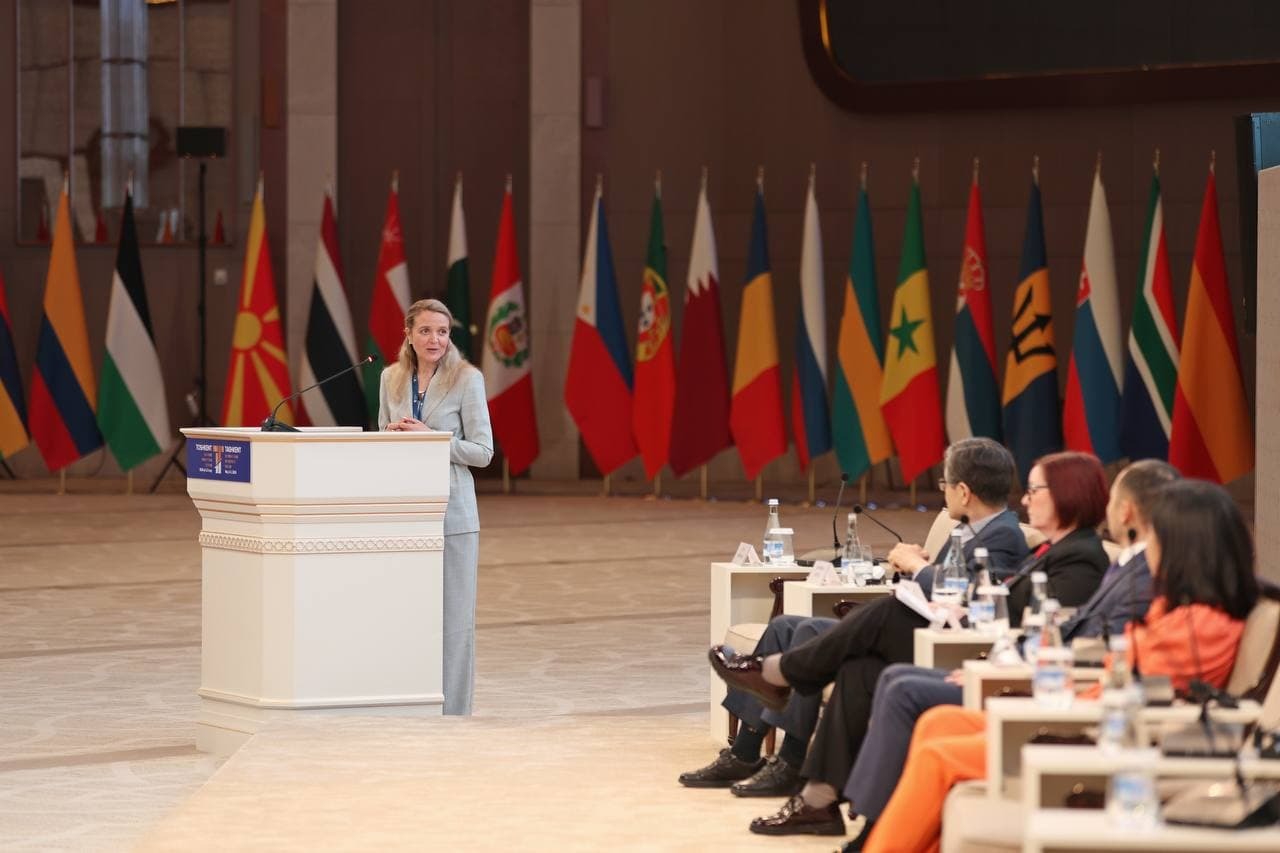- May 3 , 2024
10

Investments' Impact on Ecological Development in Uzbekistan Discussed
The importance of investments in environmental protection was thoroughly analyzed at the forum, with the understanding that “Not only the government, but also individuals are responsible.” Leading experts discussed the role of investments in the ecological development of the region. The panel session on the topic "Natural capital: the role of investments in the ecological development of the region" brought together influential speakers to discuss ways to attract financial resources for the creation of new economic models in harmony with nature. The session was led by Eva Novikova, Director of Corp Wellbeing Events. The following speakers participated in the session: - Suna Park, Advisor to the Minister of Ecology, Environment Protection, and Climate Change of Uzbekistan - Lorna Ball, Director at Arup - Raekwon Chung, Board Director of Ban Ki-Moon Foundation for a better future - Daniyar Kelbetov, Chief Product Officer at AIFC authority, Chairman of management board of AIFC Green Finance Centre During the session, participants analyzed the alarming rates of soil degradation, record temperatures, and increasing natural disasters resulting from climate change. Furthermore, the necessity of introducing long-term "intergenerational" thinking into corporate and government strategies to maximize the use of financial resources in creating inclusive "green" economic models was discussed. Experts emphasized the importance and role of investment in preserving natural capital, developing ecological clean technologies, mitigating ecotourism, and ensuring sustainable development for current and future generations. The session created a constructive platform for attracting resources to transition to sustainable and green growth models in Central Asia. Raekwon Chung, Director of Ban Ki-Moon Foundation For a Better Future, highlighted the need for alignment with ecological issues, stressing that not only the government but also society and individuals should take action: "We need to educate young people who care more about nature, instill confidence and attention in them. Recent studies show that the younger generation is more willing to pay for ecological clean products than traditional ones. First and foremost, everyone needs to rethink themselves and think more about nature. Western countries are investing heavily in sustainable and green economies. Fortunately, Uzbekistan needs it even more," he said. Another speaker, Lorna Ball, Director at Arup, believes that natural resources are one of the most important advantages of economic development and that Uzbekistan faces several challenges in this regard. “Agriculture is considered the largest workforce in Uzbekistan. Water scarcity poses a threat to this sector, putting long-term economic growth and social achievements at risk. Uzbekistan needs to solve ecological issues with natural resources," Lorna Ball expressed her opinion. Suna Park, Advisor to the Minister of Ecology, Environment Protection, and Climate Change of Uzbekistan, emphasized that attracting investment for ecological development is one of the main policies of the country. According to her, Uzbekistan is undergoing significant changes in this direction. "Previously, mainly financial issues and changes in the economy were discussed at the government level. But now many things are changing, and the sustainable development of a stable economy has become one of the important issues. However, we cannot ignore the problems. We need more examples to attract investors in this field. Even if we can demonstrate results with small-scale projects, it will strengthen the investor's confidence in the country. In addition, climate adaptation is also crucial. If we do not adapt to climate change in Uzbekistan, the damage to the economy will be even greater," she said. The speakers at the session pointed out that while any project related to water is of great importance to Uzbekistan, the lack of sufficient information poses systematic problems for investors.

